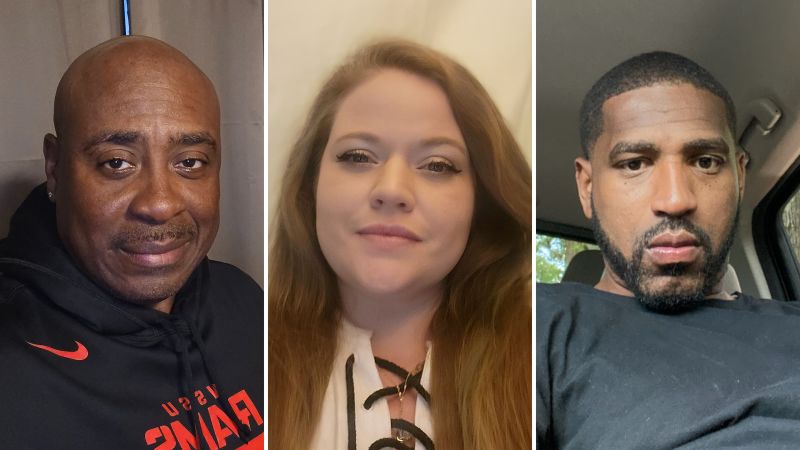Businessman Renard Johnson has been elected El Paso’s next mayor, easily defeating city Rep. Brian Kennedy Saturday.
Johnson won 56% of the total votes, while Kennedy took about 44% of the votes. The two were pushed into a runoff following the Nov. 5 general election, which drew eight candidates to the race.
“I’m super excited and super proud,” Johnson told El Paso Matters at his election party at El Mirador inside the Hotel Paso del Norte. “It shows that the community did want change, and the numbers are showing that and reflecting that, and it’s overwhelming.”

Johnson, 58, who owns a systems engineering and information technology company and a tequila brand, was backed by community and business leaders who boosted his donations to more than $1 million in his campaign. He was the first to announce his mayoral candidacy, throwing his hat in the race in January.
A political newcomer, Johnson will be El Paso’s first Black mayor and will preside over the eight-member City Council that sets a budget, tax rate and wide-ranging policies for the city. Five of the city representative seats were also in the runoff with political newcomers, meaning several council members will be largely inexperienced.
Just over 8% of registered voters cast ballots in the runoff election, which took place in the middle of the holiday season.The turnout was well off from El Paso’s last mayoral runoff in 2020.
Johnson said his first priority will be to develop his team and begin setting up meetings with both the current and newly elected officials.
“We’ve got five new City Council representatives that I’ve got to unite and bring together, and we’ve got to have a common vision to move our community (forward),” Johnson said. “It’s not going to be anyone out there doing the work by themselves – so everyone that’s on City Council is part of the team.”
CITY COUNCIL: See who won El Paso’s City Council runoff elections
Johnson has said that as mayor, he would work to lower property taxes, strengthen public safety and lure technology, aerospace and medical sectors to El Paso to enhance economic development and raise wages.
He promised he will give his salary to local charities – the mayor’s annual salary is about $95,000.

Born in Chicago, Johnson grew up in Northeast El Paso and graduated from Andress High School and the University of Texas at El Paso. He’s served on several community groups such as the El Paso Hispanic Chamber of Commerce and Boys & Girls Club of El Paso.
Kennedy, 68, an attorney and events and entertainment consultant, resigned his seat as the District 1 city representative effective in January when he ran for mayor. He was elected to the Westside representative seat in 2022, and served as mayor pro tem and head of the city’s Financial Oversight and Audit Committee.
He largely campaigned on economic development projects like creating walkable areas throughout the city and in Downtown, and using incentives to attract businesses to the city. Kennedy said he wanted to build in salary requirements with companies that get economic incentives and work to increase the minimum wage of city employees.

Kennedy, who spent much of his career running the El Paso County Coliseum through the El Paso Sports Commission, had said he wanted to bring in more sports and entertainment tourism to the city.
“El Paso gets to make a choice, and they made a choice,” Kennedy told El Paso Matters at his campaign party at Hallelujah! BBQ after conceding the race to Johnson and congratulating him.
City Reps. Isabel Salcido and Cassandra Hernandez also ran for mayor, but did not receive enough votes during the Nov. 5 general election to advance to the runoff. Hernandez’s term ends in January, while Salcido will have to resign her seat with two years left on her term.
Sitting members of City Council frequently run for mayor, but only two council members have been elected mayor in the past 50 years – Suzie Azar in 1989 and John Cook in 2005.
Read more about the powers and duties of the mayor
Although not a voting member of the City Council, the mayor can break ties, veto legislation, propose legislation and appoint members to boards and commissions with council approval.
The mayor can veto City Council legislation with the exception of the hiring or firing of the city manager, city attorney or city auditor. The council can override a veto with three-fourths of a vote.
The mayor can influence policies and decisions made by members of the council, who adopt an annual budget and tax rate and make policy decisions that impact economic development, public safety, streets and transportation and quality of life services such as libraries, museums and parks and recreation.
The new mayor will serve a four-year term and be sworn into office in early January alongside the new City Council members.





